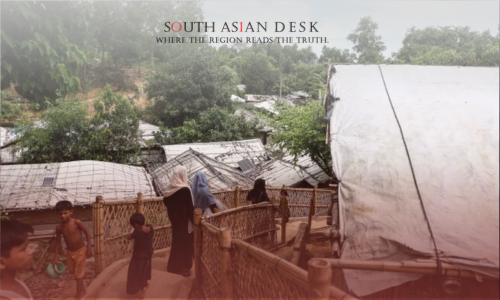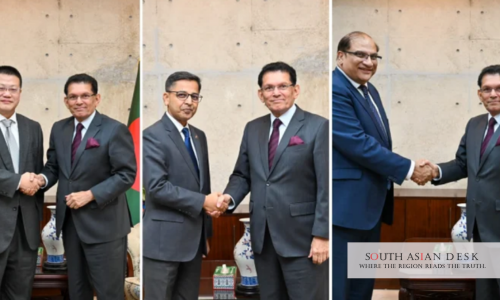The Rohingya refugee camps in Cox’s Bazar, Bangladesh, home to over one million displaced people, are grappling with significant challenges due to substantial reductions in foreign aid. These camps, hosting the world’s largest refugee population, are experiencing a dire shortage of resources, severely impacting healthcare, food security, and education for the most vulnerable.
Recent funding cuts have drastically reduced essential services. As of May 2025, only 15 percent of the $934.5 million appealed for by humanitarian organizations has been funded, leaving critical gaps in support. Food rations have been slashed, with monthly allocations dropping to approximately 18 pounds of rice, two pounds of lentils, a liter of cooking oil, and a small amount of salt per person—insufficient for basic nutritional needs. This reduction has led to rising malnutrition, particularly among children and the elderly.
Healthcare services are also under strain. Many refugees, including those with disabilities, face limited access to medical care. For instance, individuals like Jahid Alam, who suffers from a chronic leg condition, struggle to receive adequate treatment due to underfunded clinics. Similarly, families like Jahena Begum’s, whose children have visual and cognitive impairments, rely heavily on aid organizations that are now scaling back operations due to budget constraints.
Education programs are at risk, with reports indicating that school-age children may lose access to learning opportunities, threatening a generation’s future. Posts on X highlight growing concern within the humanitarian community, noting that these cutbacks could lead to a “lost generation” of Rohingya youth if not addressed urgently.
The Rohingya, displaced from Myanmar due to ethnic persecution, have depended on international aid since their mass exodus in 2017. However, global donor fatigue and policy shifts, including significant reductions in U.S. aid, have exacerbated the crisis. Humanitarian groups warn that prioritizing only the most vulnerable for assistance risks overlooking broader needs, such as livelihood initiatives and support for host communities in Bangladesh.
Efforts to mitigate the crisis include calls for alternative funding sources and mobile cash programs to foster self-reliance among refugees. There is also a push to integrate aid with local economies to reduce dependency and tensions with nearby communities. Despite these efforts, the immediate outlook remains challenging, with aid agencies seeking emergency funds to prevent further deterioration of living conditions.
Published in SouthAsianDesk, June 28th, 2025
Follow SouthAsianDesk on X, Instagram and Facebook for insights on business and current affairs from across South Asia.






